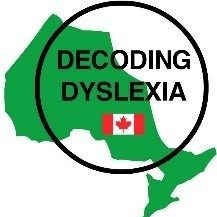The Ontario Psychological Association recommends that students can and should be identified with dyslexia as early as kindergarten. Currently in Ontario, most children are not diagnosed with dyslexia until grade 3 (and after) when they are already falling behind their peers in many areas of learning. While earlier is better, the good news is — it’s never too late to learn to read!
1. Signs of dyslexia
Many parents see the signs of dyslexia early. For example, children with dyslexia have difficulty learning the alphabet or sounding out simple words like “cat.” The signs change as a child gets older. Dyslexia is often inherited; find out if others in your family have dyslexia as this is another clue that your child might be dyslexic.
Not all reading difficulties are caused by dyslexia. It’s important to get help if you see the signs.
These resources can help you recognize the signs:
- National Centre for Improving Literacy: Understanding Dyslexia: Risks by Age
- The Yale Centre for Dyslexia and Creativity: Signs of Dyslexia
- Bright Solutions for Dyslexia: Warning Signs of Dyslexia (PDF fact sheet)
2. Dyslexia diagnosis
In Ontario, dyslexia may be diagnosed using one or more of the following terms:
- Specific Learning Disorder (SLD) with impairment in reading
- Learning Disability
- Reading disability
Many families prefer the term dyslexia, and it is accepted as an alternate term for an SLD with reading impairment in the DSM-5 (the authoritative diagnostic guide for health care professionals):
- “Dyslexia is an alternative term used to refer to a pattern of learning difficulties characterized by problems with accurate or fluent word recognition, poor decoding, and poor spelling abilities.”
A formal diagnosis can only be made by a qualified health care professional (at school or privately) through a comprehensive psychoeducational assessment.
3. Dyslexia assessment and screening
Dyslexia is diagnosed by qualified psychologists and speech language pathologists after completing a comprehensive psychoeducational assessment with your child. An assessment provides:
- a formal diagnosis of what is causing your child’s learning difficulties, such as dyslexia or another exceptionality
- information about what your child needs to learn, as well identifying their strengths and weaknesses
- recommendations that will be used by your school to develop an Individual Education Plan (IEP) for your child
Parents and educators use screening tools to identify whether your child is at risk for dyslexia, but it doesn’t provide a formal diagnosis.
How to get an assessment for dyslexia
You can request an assessment from your school psychologist (at no cost) or from a speech language pathologist or psychologist in private practice. Some of the costs may be covered through your private insurance plan. The University of Toronto (OISE Psychology Clinic) also offers psychoeducational assessments.
Resources:
- About psychological assessments – Learning Disabilities Association of Ontario (LDAO)
- Assessment information – Dyslexia Canada
- Assessment fact sheet – Ontario Branch International Dyslexia Association
- Learning disabilities in children – Canadian Psychological Association
Tip: Many families benefit from a full assessment, however you don’t need a diagnosis to be eligible for literacy intervention programs and supports (such as assistive technology) in Ontario schools. You do need the recommendation of a professional (for example, a psychologist or speech language pathologist). See the Ministry of Education’s Policy/Program Memorandum 8, 2014 and Special Education Funding Guidelines Special Equipment Amount (SEA), 2018-19)
How to get dyslexia screening
Screeners are informal tools used for identifying the signs of dyslexia, but do not provide a formal diagnosis. You can find screening tools online. An educator or reading specialist may also be able to screen your child.
Resources:
- Informal screening (International Dyslexia Association Ontario)
- Online Screeners for pre-school, school-age childen and adults (International Dyslexia Association)
If your child is diagnosed with dyslexia — don’t despair! Getting a diagnosis is the first step to getting help. Read our 6 tips to help your child right now.
Disclaimer: Decoding Dyslexia Ontario does not approve or endorse any specific tools for screening purposes.
